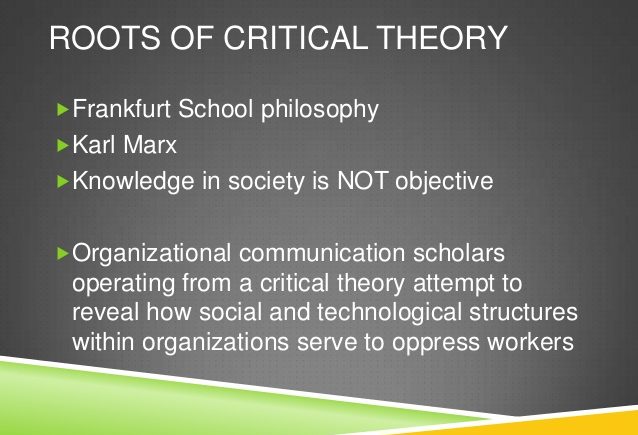Among the substantial body of research undertaken by the Frankfurt School theorists, the concept of the ‘culture industry’, first used by Adorno and Horkheimer in a book entitled Dialectic of Enlightenment written in 1944 and published in 1947, has received the widest international attention. Identified with the staff of the Institute for Social Research, founded in 1923 and affiliated with the University of Frankfurt, its key members included Max Horkheimer (1895-1973), Theodor Adorno (1903-69) and Herbert Marcuse (1898-1979).
Analysing the industrial production of cultural goods – films, radio programmes, music and magazines, etc. – as a global movement, they argued that in capitalist societies the trend was towards producing culture as a commodity (Adorno, 1991). Adorno and Horkheimer believed that cultural products manifested the same kind of management practices, technological rationality and organizational schemes as the mass-produced industrial goods such as cars. This ‘assembly-line character’, they argued, could be observed in ‘the synthetic, planned method of turning out its products (factory-like not only in the studio but, more or less, in the compilation of cheap biographies, pseudo-documentary novels, and hit songs)’ (Adorno and Horkheimer, 1979 [1947]: 163).
Such industrial production led to standardization, resulting in a mass culture made up of a series of objects bearing the stamp of the culture industry. This industrially produced and commodified culture, it was argued, led to a deterioration of the philosophical role of culture. Instead, this mediated culture contributed to the incorporation of the working classes into the structures of advanced capitalism and in limiting their horizons to political and economic goals that could be realized within the capitalist system without challenging it. The critical theorists argued that the development of the ‘culture industry’ and its ability to ideologically inoculate the masses against socialist ideas benefited the ruling classes.
Marrying the psychoanalytical theories of Sigmund Freud with Marxian economic analysis, the critical theorists borrowed the notion of commodification from Marx, who had argued that objects are commodified by acquiring an exchange value instead of their intrinsic value. In their analysis of cultural products, they argued that in a capitalist economy cultural products are produced and sold in media markets as commodities and the consumers buy them not just because of their intrinsic worth but in exchange for entertainment or to fulfil their psychological needs.
The concentration of ownership of cultural production in a few producers resulted in a standardized commercial commodity, contributing to what they called a ‘mass culture’ – influenced by the mass media and one which thrived on the market rules of supply and demand. In their view, such a process undermined the critical engagement of masses with important socio-political issues and ensured a politically passive social behaviour and the subordination of the working classes to the ruling elite.
Marcuse, who migrated to the USA where he had a huge influence on the labour movement, argued that technological rationality or instrumental reason had reduced speech and thought to a single dimension, establishing what he called a ‘one-dimensional society’ which had abolished the distance required for critical thought. One of the most incisive chapters of Marcuse’s book One Dimensional Man (1964), discusses ‘one-dimensional language’ and frequently refers to media discourse.
In an international context the idea of ‘mass culture’ and media and cultural industries has influenced debates about the flow of information between countries. The issue of the commodification of culture is present in many analyses of the operation of book publishing, film and popular music industries. One indication of this was the 1982 UNESCO report which argued that cultural industries in the world were greatly influenced by the major media and communication companies and were being continually corporatized. The expansion of mainly Western-based cultural products globally had resulted, it argued, in the gradual ‘marginalisation of cultural messages that do not take the form of goods, primarily of values as marketable commodities’ (UNESCO, 1982: 10).
This emphasis on ownership and control of the means of cultural production and the argument that it directly shapes the activities of artists has been contested by several writers, arguing that creativity and cultural consumption can be independent of production cycles and that the production process itself is not as organised or rigidly standardized as stated by the Frankfurt School theorists.
